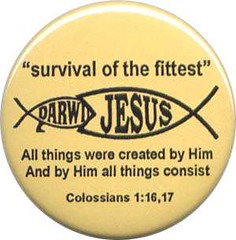Gentle reader,
It's no easy task to write about such a vast topic. Please be patient. I 'll have it right soon (maybe) Have a jelly donut while you wait...
Gentle readers,
Many have ask if I wouldn’t expand on my understanding of Time and how infinity is involved. Is time travel possible? What is time, do we recognize what time it is or how much time we have left?We are all travelers these days. Every one is "going somewhere else" — to England, to Europe, to South America, to the Caribbean. So exciting to most people is the prospect of travel that the destination
itself is scarcely important! The great thing is to be on the move and to be going "first class" if possible.
Probably Americans are the most mobile people in the world — with the exception of nomads!
But there is one journey we are reluctant to think about — at least, we want to postpone it as long as possible. It is the journey out of time into eternity. Yet we know we shall all, or nearly all, have to make it in the end, and at a time not altogether of our choosing. . . .
What can it mean to pass out of this world of space and time and find ourselves in a timeless, spaceless (?) world in which to move from one "place" to another will neither occupy time nor require passing through the intervening space between? How "long" will it take? How does one "go" there?
A propos of the matter of the "time" taken for this journey, I presented a paper in London somewhere around 1998-9 as the crows flies.
After the lecture, a man came up to me and said: "This is all nonsense! How can you say that where there is no space there is no time either? Existence without time is inconceivable!" But then he added, "I'd still like to have a copy of your paper."
So I gave him one. But I hardly felt encouraged by his response to a truth I had only a little while before
perceived as having a profound relevance to what happens when we pass out of this world and go to be forever with the Lord.
What if heaven is just an instant? What if time does not exist as we it does? What if we live our whole lives in only the now?
Some weeks later, I had a phone call from him. "What did you mean," he asked, "by the statement. . . ." and he read to me a couple of sentences that were really the crux of the matter. And I could see that he had been mulling over the subject and was in fact on the verge of seeing the whole point. Indeed, about three months later he was explaining it all to his wife and invited me to come over and help him along! He had gotten the point. And you may imagine how rewarded I felt.
Anyway, you may very well find yourself wondering, as he did. I only hope you will stay with it. I believe it provides an answer to a very profound problem that has been unresolved for centuries but is now within sight of resolution and the prospect is indeed an exciting one.
Someone said that it takes two to tell a truth, one to speak it and one to hear it spoken.
There are truths that we only grasp after we have given them verbal expression for the benefit of someone else. We may think we understand a truth, but when we try to share it with another person we often discover that we only half understand it ourselves. Then the attempt to communicate it clarifies our thoughts and the would-be teacher becomes his own pupil and learns from himself by the effort of telling.
I believe that each gentle reader will profit most from this study if he will try to share it with a friend with whom rapport has already been established, and will then discuss it so as to clarify its implications.
These implications are profound and far reaching. There is much to comfort those who have fears about the journey that is to be taken from time into eternity when we come to crossing over Jordan. Moreover, some centuries-old questions regarding the nature of man.
The nature of the intermediate state between death and resurrection ( if you are one who believes that we never die but pass on to another plain of existence) are answered in a new way.
Although it seemed necessary to begin with certain aspects of time upon which recent research has shed an entirely new light, the perceptive reader will soon begin to recognize the relevance of this research to a number of more puzzling passages of Scripture, the meaning of which has hitherto
remained somewhat obscure.
New light may also be shed on the phenomenon of expectancy of the Lord's return, an expectancy that seems so clearly indicated in the New Testament and has always been dear to the Lord's people in spite of centuries of "delay." Indeed, so long has this delay continued that many believe such expectancy is both unreasonable and improper. This study, however, will help to show that such a negative conclusion is entirely unwarranted. The Coming of the Lord in glory can indeed be looked for, expectantly, by every believer.
If you find the going difficult here and there, don't give up. You will be amply rewarded in the end. Keep going as I write about the various aspects of time and how infinity enters in to our understanding. Gradually the picture will become clearer until suddenly the light will shine and you will say, "Oh, I see!" and you will rejoice in the Lord. Who will have deepened your understanding and faith as this for many of you will be a foray into territory that is not usually explored by the Christian reader, and it stretches the mind in new directions. It is an adventure in ideas that may at first seem to be foreign to the things that matter most to people. But eventually you will find that the Word of God has been marvelously illuminated in an entirely new way as the old Faith becomes doubly reassuring about one of the greatest mysteries of life, the journey out of your time into infinity and eternity.
So for now gentle reader.... have a jelly donut!
To be continued. . .
Love,
Denis














